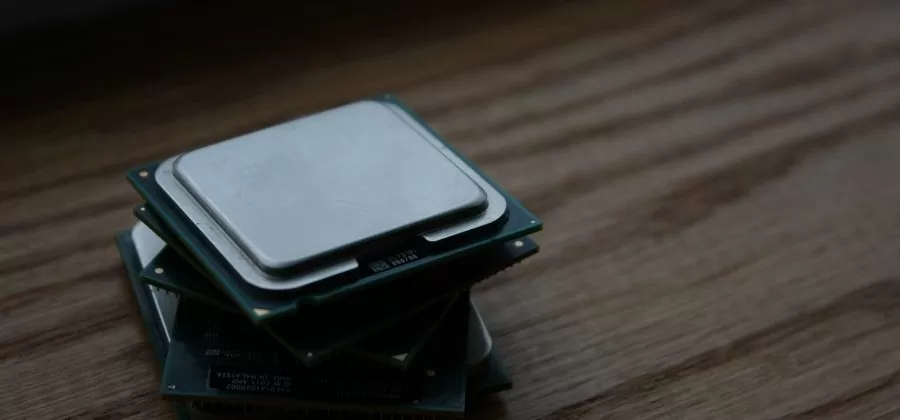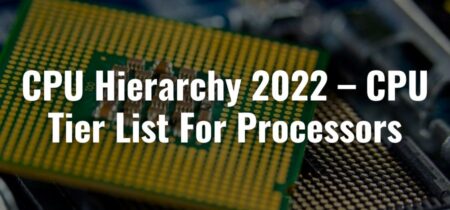Should I overclock my CPU? This is the common question somebody may ask yourself when you will do something with your system. The thing is, overclocking is a process where you can increase the speed of your processor beyond its stock frequency. The CPU frequency is the frequency at which the CPU performs its calculations.
It means, increasing the processor frequency increases the speed of the processor for performing those calculations or doing extra work. An overclocked processor is sort of like a car that’s been modified. You get better performance but at the cost of reliability. However, it can be done safely.
Should I Overclock My CPU?

Moreover, many people do not understand what it means to overclock their CPUs. There are many benefits to overclocking, but there are also many risks. This blog will discuss the topic of overclocking and the many questions and concerns you should ask before you start overclocking your CPU. Keep reading to find out!
What parts of your system can be overclocked?
Any component that has a clock or motor that requires voltage from the power supply can be overclocked. This would include the CPU, RAM, GPU, AGP, PCI, PCI-e, and hard drive. Each component can withstand a maximum amount of voltage and a maximum amount of heat. Most commonly overlooked are the GPU and CPU.
However, you shouldn’t go for a rapid OC process unless you know the advantages and disadvantages of overclocking your system. In this case, we’ll talk about the overlocking process of the CPU and find out its benefits and drawbacks.
The Advantages of Overclocking your CPU:
Overclocking is an easy way to make your computer run faster. Underclocking is the opposite when you make your computer run slower in order to save power or run cooler. There are several advantages of overclocking your CPU, as some of the highly appreciated are given below. Please have a look.
- Overclocking gives you more performance for the same price (or less performance for the same price). Your computer runs faster.
- You get more performance for the same energy. This is particularly useful for laptops or other mobile devices.
- You get better response times, smoother video playback, better 3D graphics performance, faster file transfers, faster website loading, faster gameplay, etc.
- Overclocking your processor can help you get the most out of your investment.
Overall, it is worth doing if you know all the dos and don’ts of overclocking your CPU. Now, let’s have a look at the disadvantages of overclocking the processor.
Disadvantages of Overlocking:
Overclocking your CPU basically means running it at a higher frequency than it was originally designed to run. Overclocking a processor is a good way to increase the performance of your system. However, it is not a complete solution for a slow system. There are several downsides to overclocking the CPU, some of which are mentioned below:
- In some instances, overclocking can lead to reduced system stability.
- Overclocking a CPU tends to produce a lot of heat within the computer case, which, in turn, can produce a lot of noise.
- Replacing the cooling system of a PC to accommodate overclocking can be a costly affair.
- Most motherboards do not come with a built-in overclocked adapter, and thus one needs to buy a separate one.
- The main disadvantage of overclocking your processor is that it will wear down your processor much faster than it would normally wear down. This is because of the added stress of running at a higher speed.
- Another disadvantage is that overclocking will void any warranty for the CPU.
These were some of the most prominent drawbacks of overclocking a CPU. You can get a better idea of whether you should go for an overclocking CPU process or not. Let’s make you decide.
Should I Really go for overclocking my CPU?
Overclocking a PC may be a real headache. Still, it’s been getting easier and easier with each new generation of hardware. It’s important to remember that overclocking isn’t necessary or even desirable for the vast majority of PCs out there.
However, if you keep your wits about yourself and take care to do everything right, you shouldn’t come across any problems at all! Overclocking a PC will only get easier with time, which means this process isn’t going anywhere anytime soon! In that case, the process is just too risky, and research shows that you should just take the normal path.
As long as the lifetime of your processor isn’t shortened too severely, you have nothing to lose as far as using it as a cooling medium is concerned. Just make sure you keep the CPU at a good temperature and don’t permanently damage it if you plan to use it for other purposes still afterward, too.
You can always try messing around with your PC’s clock speed if you want to experiment. You could even overclock an old computer or one that isn’t important to you if you really wanted- remember, there’s no harm in trying! Just don’t put your current machine at risk, though. Otherwise, you may be left feeling angry about it. It might be worth mentioning that some processors are faster than others when it comes to overclocking, so if this is something you’re interested in doing, it might be worth looking for a CPU designed specifically for overclocking. One example which comes to mind is the Intel K series.
Frequently Asked Questions
Should I overclock my CPU for gaming?
First of all, overclocking is the process of increasing the clock speed of your computer’s processor by setting it higher than its default speed. It is one of the most common ways to get more performance out of your computer.
Overclocking can help improve gaming performance in two ways: enabling high frame rates and giving the computer more processing power to handle the tasks required to generate frames. This makes it ideal in situations in which faster frame rendering translates to faster in-game motion.
So, in the end, it depends on your expectation in terms of frame rate. If you are okay with 40-50 fps, you can go ahead with overclocking, but if your expectation is 60-100 fps, overclocking may not be effective.
What to overlock, CPU, or GPU?
I would recommend you to go for a GPU. Overclocking is the process of improving the speed and performance of a computer through manual modifications to computer hardware.
So, basically, overclocking is like taking a car and squeezing the engine’s power, and putting the car to the test to see if it can run faster, smoother, and longer. Overclocking, as it relates to your computer, is much easier. With a little knowledge, you can have your computer operating at a much faster speed.
My answer is that GPU is a better choice as you can mine many cryptocurrencies compared to CPU.
Is Overclocking Safe?
Yes, overclocking is safe if done correctly. You must do some research on a computer’s BIOS, a computer’s hardware, and a computer’s cooling system before you overclock a computer. It is important to know how to shut down the computer, open the computer and remove hardware from a computer before you overclock a computer.
I have been overclocking for over a year, and it is a very safe activity if done correctly. It is also very fun and interesting. It is also a great learning experience.
Summary:
It’s clear that you should overclock your CPU if you want to make it run faster. Still, you should avoid overclocking if you are worried about the effects on its longevity. However, if you can do it safely, you can get a huge speed increase for very little money. Overclocking might be the best option for you if you are on a tight budget or are looking to get the most out of your computer.
So, I hope you are cleared with your query of whether I should overclock my CPU after reading this blog post. Have a nice day! If you have any more questions or queries to ask, please do not forget to let us know.

![How To Fix A CPU Cooler Not Lighting Up? [New Guide 2023]](https://www.drtechreviews.com/wp-content/uploads/2022/07/How-To-Fix-A-CPU-Cooler-Not-Lighting-Up-450x210.jpg)

![Why Is My CPU Cooler So Loud? [Facts 2023]](https://www.drtechreviews.com/wp-content/uploads/2022/07/Why-Is-My-CPU-Cooler-So-Loud-450x210.jpg)
![Fix Dual Monitor Lag In Windows [Explanation For Beginners]](https://www.drtechreviews.com/wp-content/uploads/2022/07/Fix-Dual-Monitor-Lag-In-Windows-450x210.jpg)
![Fix A Monitor Randomly Loses Signal [Problems & Solutions 2023]](https://www.drtechreviews.com/wp-content/uploads/2022/07/Fix-A-Monitor-Randomly-Loses-Signal-450x210.jpg)